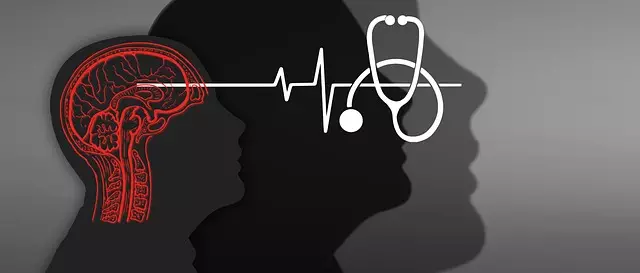Crisis Intervention Teams (CITs), composed of professionals like nurses, social workers, and psychologists, offer swift support during mental health crises, as demonstrated by services available at the Kaiser Permanente behavioral health phone number Englewood. Beyond immediate intervention, CITs teach coping strategies for future crises, reduce mental illness stigma, and de-escalate situations using effective communication and conflict resolution techniques. This proactive approach, funded in part by the Kaiser Permanente behavioral health phone number for Englewood, fosters safer communities and long-term recovery resources, benefiting diverse residents.
Crisis intervention teams (CITs) play a crucial role in mental health care, providing immediate support during crises. This article delves into the importance of CIT training programs and highlights key components for effective crisis response. We explore how these programs empower individuals to handle critical situations, with a focus on Englewood community’s success story. Additionally, we provide insights into accessing expert support through Kaiser Permanente Behavioral Health Phone Number, underscoring the vital role of trained CITs in communities like Englewood.
- Understanding Crisis Intervention Teams: A Vital Resource in Mental Health Care
- Kaiser Permanente Behavioral Health Phone Number: Accessing Expert Support
- Training Programs for Effective Crisis Response: Key Components and Benefits
- Englewood Community and the Impact of Trained Crisis Intervention Teams
Understanding Crisis Intervention Teams: A Vital Resource in Mental Health Care

Crisis Intervention Teams (CITs) are a vital resource in mental health care, offering immediate support and guidance during crises. These teams, often composed of specialized professionals like nurses, social workers, and psychologists, are designed to provide rapid response to individuals experiencing severe emotional distress or psychiatric emergencies. By integrating CITs into the existing healthcare infrastructure, such as those available at the Kaiser Permanente behavioral health phone number Englewood, communities can enhance their ability to address mental health challenges proactively.
The role of these teams extends beyond immediate intervention. They foster Inner Strength Development by equipping individuals with coping strategies and skills to navigate future crises. Moreover, CITs contribute to Mental Illness Stigma Reduction Efforts by promoting understanding and empathy within communities. Through effective communication and Conflict Resolution Techniques, team members de-escalate situations, ensuring a safer and more supportive environment for those in need.
Kaiser Permanente Behavioral Health Phone Number: Accessing Expert Support

In moments of crisis or intense emotional distress, immediate access to expert support can make a significant difference. For residents of Englewood, the Kaiser Permanente Behavioral Health Phone Number offers just that—a direct line to professional help tailored for mental wellness and burnout prevention. This dedicated resource is designed to provide swift intervention, ensuring individuals receive the necessary guidance and strategies for managing stress reduction methods effectively.
Whether it’s a personal crisis or a situation affecting someone close by, the team behind this phone service is equipped to handle diverse challenges. They offer a safe space to discuss issues related to mental health, providing valuable insights and tools to navigate through difficult times. By reaching out to this Kaiser Permanente behavioral health hotline, Englewood residents can take the first step towards recovery and rediscovering their mental balance.
Training Programs for Effective Crisis Response: Key Components and Benefits

Effective crisis intervention team training programs are pivotal for organizations aiming to respond to mental health crises promptly and compassionately. These programs equip teams with essential skills to assess, de-escalate, and stabilize individuals in distress. Key components of such training include evidence-based practices like Mood Management and Emotional Well-being Promotion Techniques, which foster a safe and supportive environment.
The benefits are manifold: enhanced team cohesion, improved crisis resolution rates, and better outcomes for those facing mental health challenges. Moreover, Compassion Cultivation Practices play a crucial role in building empathetic connections, ensuring that interventions are not just reactive but also restorative. Programs like these, exemplified by organizations such as Kaiser Permanente behavioral health phone number Englewood, demonstrate a commitment to holistic care and community well-being.
Englewood Community and the Impact of Trained Crisis Intervention Teams

Englewood, a diverse community facing its fair share of challenges, has benefited immensely from Kaiser Permanente behavioral health phone number initiatives and the implementation of crisis intervention team (CIT) training programs. These teams, comprised of individuals from various walks of life, are equipped with essential skills to handle mental health crises effectively. Through rigorous training, they learn empathy-building strategies, confidence-boosting techniques, and self-care practices that enable them to support those in distress.
The impact has been profound, transforming the way the community responds to crisis situations. Trained CIT members are now better equipped to de-escalate tensions, provide immediate assistance, and connect individuals with the necessary resources for long-term recovery. This proactive approach not only ensures safer communities but also fosters a culture of care and support where help is readily available.
Crisis intervention team training programs, such as those modeled by organizations like Kaiser Permanente behavioral health, play a pivotal role in enhancing mental health care. By equipping individuals with the skills to navigate crises effectively, these initiatives ensure that communities like Englewood have access to timely and competent support. The benefits extend beyond individual impact; trained crisis teams can revolutionize response times and outcomes for vulnerable populations, ultimately fostering safer, healthier environments.





